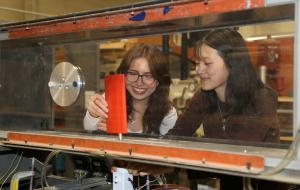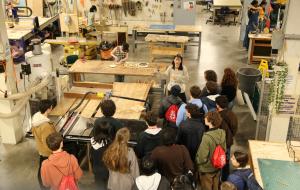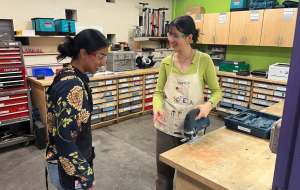Brown’s Institute for Biology, Engineering, and Medicine (I-BEAM) is excited to welcome our five new Marketing, Communications, and Recruitment Assistants.
“Give everybody an active voice:” Inclusivity and Community in the BDW
Every day in the Brown Design Workshop (BDW), manager Jules Silva learns something new. While they are often the one teaching classes and facilitating programming, Jules said “I learn so much from community members that are so dedicated to their crafts.”
“The Grand Challenge:” Sustainability in the BDW
“A friendly group of people:” The faces behind the BDW
Brown’s Institute of Biology, Engineering, and Medicine (I-BEAM) is excited to announce our Fall I-BEAM BME Seminar Series schedule. This semester’s speakers hail from seven top universities across the country and have a diverse range of experiences working at the intersection of engineering and health.
The Institute for Biology, Engineering, and Medicine (I-BEAM) is excited to announce that Professor David Borton, our current Associate Director, will be assuming the role of Interim Director starting on August 1, 2024.
Professor Vicki Colvin has spent just over a year serving as the inaugural Institute for Biology, Engineering, and Medicine (I-BEAM) Director. Now, she is onto the next exciting chapter in her career: the Baton Rouge native will return to the south as Louisiana State University’s Edward K. Barton Dean of Engineering.









